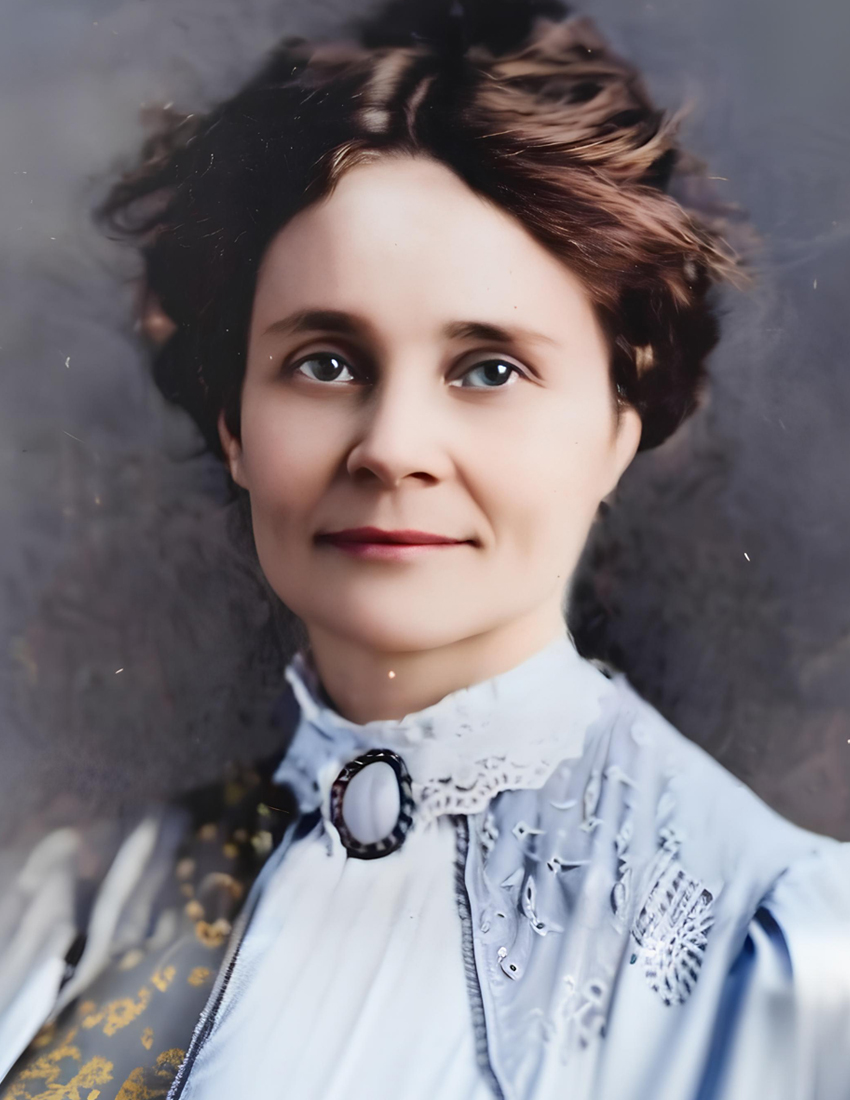Born: January 22, 1855, Walden, VT.
Died: March 27, 1934, Portland, OR.
Buried: Rose City Cemetery, Portland, OR.
Carrie Breck

Hymns by Carrie Breck
A Poetic Soul Blooms in New England
On a frosty January day in 1855, in the quaint New England town of Walden, Vermont, Carrie Elizabeth Ellis entered the world. Her lineage traced back to Col. Timothy Ellis, a decorated veteran of the Battle of Ticonderoga in the Revolutionary War. This heritage of courage and conviction would echo through her own life’s work, though her battlefield would be the realm of words and faith.
Early Inspirations and Influences
When Carrie was eight, her family transplanted their roots to Vineland, New Jersey. Here, amid the bustling community, young Carrie’s talent for poetry began to flourish. Despite limited formal education, her gift caught the eye of local patrons who sponsored her involvement in the community literary society for youth.
Carrie’s childhood neighbor was Henry Clay Work, a composer known for his Civil War songs including “Marching Through Georgia” and “Grandfather’s Clock.” Carrie later reminisced, “I distinctly remember his pleasant, kind-hearted wife allowing me to thrum on their little melodeon with my childish fingers.” These early brushes with literary and musical noteables would shape her future path.
Faith, Family, and Verse
Carrie’s upbringing was steeped in faith. As Charles Gabriel, a renowned American composer and lyricist of gospel songs, noted, “Her parents and grandparents were God-fearing people. And she cannot remember when Bible reading and prayer were not her daily home custom.” This foundation of faith would become the wellspring of her poetic inspiration.
In 1883 (or 1884, sources differ), Carrie married Frank A. Breck, a local farmer. Together, they raised five daughters and were active members of the First Presbyterian Church in Vineland. Carrie’s life became a beautiful balance of domesticity and creativity.
Verses Amidst the Mundane
Though her health was often fragile, Carrie’s spirit remained unbroken. “It was a great joy to me,” she wrote, “and as opportunity offered, I penciled verse under all sorts of conditions — over a mending basket, with a baby in arms, and sometimes even when sweeping up or washing dishes, my mind moved to poetic meter.” This image of a mother cradling both a child and a poem captures the essence of Carrie’s life and work.
A Legacy in Rhyme
In 1914, the Brecks moved to Portland, Oregon, where Carrie would spend her final two decades. By the time of her passing in 1934, she had penned over 2000 poems, many of which became beloved hymns. Remarkably, Carrie herself “could not carry a tune and had no natural sense of pitch, but she had a keen sense of rhythm and loved music.” Her most famous hymn, “Face to Face,” embodies a beautiful paradox: lyrical beauty crafted by a woman who couldn’t carry a tune herself.
Carrie E. Breck’s life reminds us that sometimes the most profound expressions of faith are born in the quiet moments between life’s demands. Her legacy lives on in the countless voices that still sing her words today.

